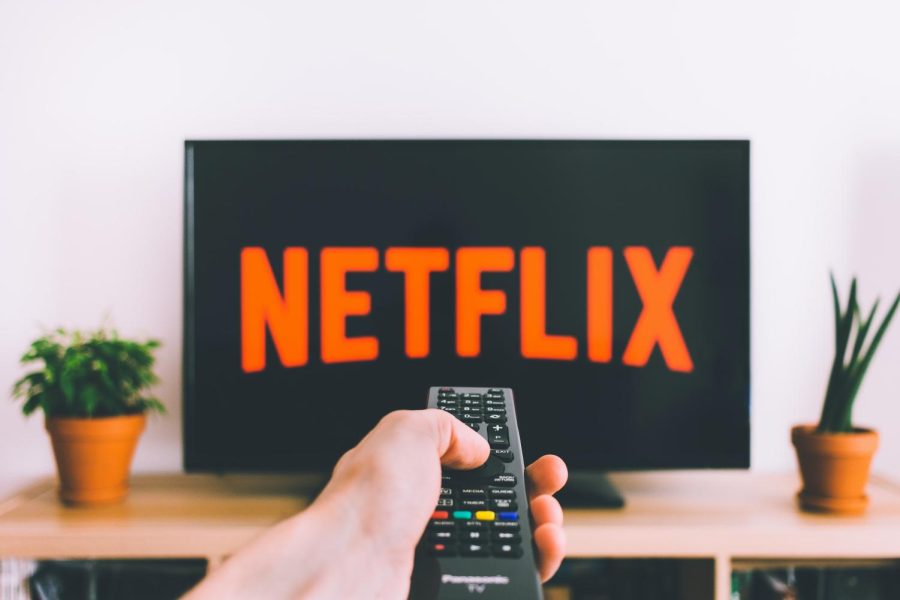Is Netflix Losing Its Thunder?
As many Netflix and chill, the massive streaming company is facing heavy competition
March 21, 2022
At the very beginning of last year, The Office left Netflix. Though this is far from a new revelation, The Office‘s exit signaled an opening wound in the company’s catalog. This wound opened further as the year continued, with the myriad of new and different streaming services grabbing IPs left and right.
The big streaming services that put a gap in Netflix’s once infinite expanse of beloved shows and movies included PeacockTV, Disney+, HBOMax, and more recently, ParamountPlus. Many of the favored sitcoms that Netflix originally lorded over have been designated to PeacockTV, namely, The Office. The large blockbusters that eventually trickled onto Netflix’s platform have instead gone to Disney+. Childhood channels that were fondly remembered, such as Nickelodeon and Cartoon Network, were mostly divided up among Disney+, HBOMax, and now ParamountPlus.
Netflix is now facing the wrath of massive conglomerates who want back exclusive rights to their property. Since these conglomerates are just that, the sole owners, it means that Netflix has almost nowhere to turn to besides making their own content, which has seen mixed results, or to find independent properties that haven’t yet entered the hands of other gigantic corporations.
This line of thinking is evident in their March releases, which is composed almost entirely of either Netflix original series/films or of media that wasn’t yet exclusive to competing streaming services. Those big names included Dunkirk, Nightmare on Elm Street (both versions), Green Mile, Shrek and Shrek 2, and around sixty sorted Netflix originals/sponsored contents. It is clear that Netflix is no longer the end all be all of streaming, and the consumer has definitely felt the effect of that.
Add to that the recent scrutiny Netflix has received from the public eye with their crackdown on piracy, or in their words “password sharing”. While Netflix is not the only streaming platform to dislike multiple people on a single account, that sort of behavior is almost ingrained into the service, and their now adamant stance against it has users fuming. Compare this to the mostly silent competition that prefers to address their feuds with piracy privately.
It is a difficult choice to choose to cancel any one of these services because of how divided all the properties are, and nobody wants to miss out on the next big show or enthralling movie. There are more subscriptions than ever, each draining money out of the buyer’s wallet each month. Adding to that is the fact that Netflix’s subscription price saw an increase by about two dollars at the beginning of 2022 (and just recently on March 10th). Even though that doesn’t seem like a dealbreaker, for most people a choice has to be made. No longer can one service like Netflix cover all media needs, no matter how much it tries to live up to that possibility.











































































